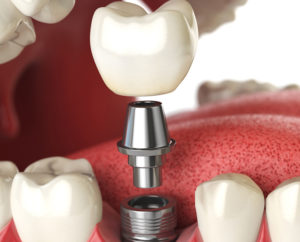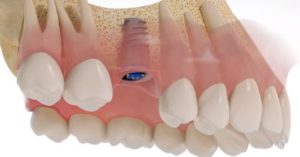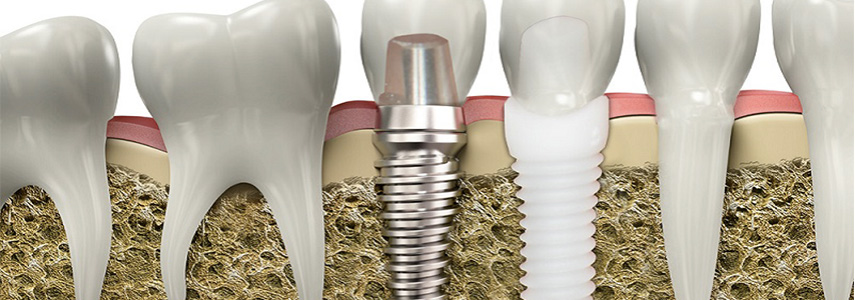Are you afraid of a possible rejection of the system? You can reassure yourself because the implant rejection does not exist.
Implant failure is not implant rejection
 In the medical field we speak of rejection when the organism identifies an “intruder” inside it, identifies it as potentially dangerous and the immune system is activated to “reject it”.
In the medical field we speak of rejection when the organism identifies an “intruder” inside it, identifies it as potentially dangerous and the immune system is activated to “reject it”.
In implantology the rejection of the implant is to be excluded because all the implants are made of titanium, a material that is entirely biocompatible with the human organism.
So it is true that a foreign body is inserted into the body, implantology in fact involves inserting the implant into the bone, but the implant is made of titanium and integrates perfectly with the bone through a process that takes the name of osseointegration.
A case of implant rejection or cases of titanium intolerance has never been recorded in scientific literature.
Implant failure
With the exception of rejection, however, implant failure may occur which may be immediate or posthumous.
Immediate loss of dental implant
It may be due to several causes, among the main ones:
- particularly complex situation with high risk of failure;
- incorrect planning or execution of the intervention or incorrect choice of materials;
- various diseases (diabetes, infections, …);
- interaction with other therapies (radiotherapy, …).
Even the best center in the world can avoid the risk of implant failure; having the best technology, material of all kinds, being able to count on a large team, always present and with a lot of experience, certainly allows us to considerably reduce any risk.

For these and other reasons it is always good to rely on a center specializing in implantology, a center able to offer you all the guarantees that a patient desires when he has to undergo an operation.
To these causes can be added some responsibilities on the part of the patient:
- transgression of the indications provided by the implantologist for post-surgery;
- excessive smoking or alcohol abuse;
- neglected oral hygiene.
Late implant loss
When implant failure occurs years after implant placement, the cause is often due to a bacterial infection. Clinically it is called peri-implantitis and has a process very similar to periodontitis, the infection attacks the implant until it causes its loss.

Even in these cases, following the dentist’s instructions for post-surgery and not neglecting the monitoring, care and cleaning of the implant is the best preventive strategy.
Having established that there is no dental implant rejection, it is still important to contact the dentist immediately should the following symptoms occur:
- pain near the implant;
- gum bleeding;
- implant mobility.
It is important not to neglect these possible symptoms, the dentist can intervene promptly and avoid the loss of the implant. In any case, periodic check-ups, planned after an implant surgery, serve precisely to avoid any type of complication, which is why it is important not to desert them.
















